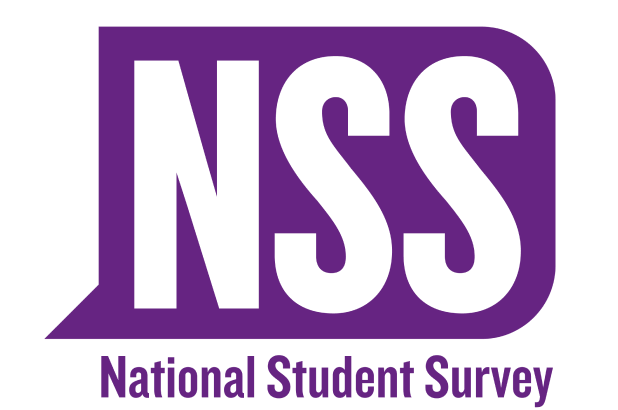All entry requirements listed here should be used as a guide. Applicants who are made a conditional offer of a place may be asked to achieve more than is stated.
Year 1
Scottish Higher: BBBB from Higher to include Biology or Human Biology plus Nat 5 English C
Minimum entry requirements: BCCC from Higher to include Biology or Human Biology plus Nat 5 English C
A level: BBC including Biology plus GCSE C/4 in English
ILC Higher: H2 H2 H3 H3 including Biology plus O2 in English
IB Diploma: 28 points including Higher Level Biology
BTEC: DMM Ext Dip in Science including Biology plus GCSE C/4 in English
SWAP: Access to Medical Studies or Biological and Chemical Science - BBB including 65% in Biology
College HNC: Dental Nursing plus Scottish Higher BBB including Biology/Human Biology
College HND: Dental Nursing plus Scottish Higher BB including Biology/Human Biology
SVQ/NVQ/NEBDN: Dental Nursing plus Scottish Higher BBB including Biology/Human Biology or A Level BB including Biology
English language: IELTS score of 7.0 with no element below 6.5 (or equivalent)
Additional requirements
Good communication skills are essential to be able to deal with patients and parents or carers. Students are expected to adhere to the strict code of conduct outlined by the General Dental Council and a high standard of maturity, confidentiality and professionalism is expected to be maintained throughout the course.
Selected applicants will be invited to attend interviews as part of the admissions process.
This programme is not open to international applicants.
English language IELTS score of 7.0 with no element below 6.5 (or equivalent)
Additional information
Relevant experience (RPL)
GCU's flexible entry policies exist to allow relevant work experience and prior learning to be considered towards standard entry or advanced entry into a course.
If you do not have the typical academic entry qualifications, but can demonstrate relevant work experience and/or credits from recognised professional bodies, you may be eligible to enter this course via the University's Recognition of Prior Learning scheme.
Minimum entry requirements
Minimum entry requirements are for widening access students only. If you are from a group that is not currently well-represented in higher education you may qualify as a widening access student. This includes living in a target postcode area, attending a target school or college, attending SWAP, are care-experienced or provide care for someone else, have refugee status or are an asylum seeker.
The tuition fees you pay are mostly determined by your fee status. What is my student fee status?
Fees are subject to change and are published here for guidance only.
Annual full-time tuition fees 25/26
Home: £1,820*
RUK: £9,535
International: £15,200
*Scottish student tuition fees are subject to confirmation by the Scottish Government and may change once confirmed.
Additional costs
As a student at the University, there are additional fees and costs which may or may not apply to you, but that you should be aware of.
View additional costs
Additional costs for fee-paying students
Self-funded students are required to cover the cost of the following:
- Uniforms, approximately £16 each. The number of uniforms you require depends on the duration of your course and can range from two to four.
- Occupational health checks and vaccination, approximately £200.
Additional Costs for all students:
Membership of Protection of Vulnerable Groups (PVG) scheme. New applications cost £59. Updates to existing scheme record costs £18.
Scholarships
We provide high-quality education for a fair price; as the University for the Common Good, we are committed to offering accessible higher education for talented students by keeping our tuition fees low and providing a generous scholarship package.
View undergraduate scholarships at GCU.
Assessment methods
We use a wide range of learning and teaching methods to ensure that you have both the necessary knowledge and understanding of business and management and a portfolio of intellectual and personal skills.
Each module on the programme uses its own learning, teaching and assessment strategy to achieve learning objectives. Assessment methods vary between modules and may include unseen examinations, class tests, essays, management reports, case studies, presentations, and group work.
Membership
Both students and graduates are eligible to apply for membership of the British Dental Association of Dental Therapists and The British Society of Dental Hygienists and Therapists.
Professional Accreditation
Graduates will be eligible to apply for registration with the General Dental Council.
Teaching methods
The learning and teaching methods we use ensure that our programme is both vocationally relevant and academically challenging. Our approach is student-centred, practical, participative and relevant to the needs of employers.
We've moved away from the traditional teacher-centric learning to a more independent learning approach, where you are encouraged to develop critical thinking skills.
Work Placements
Placements exist in dental outreach centres. Year 2 students will attend an adult dental centre on a rotational basis. Year 3 students will attend a variety of adult and paediatric placements in several hospital and health centres across Greater Glasgow and Clyde and Lanarkshire Health Boards.
Please note
There is continuous recording within the Interprofessional Simulation Centre (ISC) rooms. These recordings may be used for learning and assessment purposes to fulfil programme requirements, so all students registered on health-related programmes may be recorded while in these rooms. Recordings may be viewed by programme staff, students, and external examiners. Recordings are routinely deleted after 28 days; however, in certain circumstances, this period may be extended to accommodate moderation and education quality requirements.


